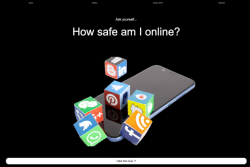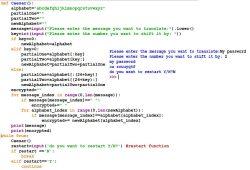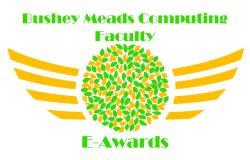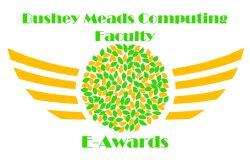eLearning Leaders Cybersecurity Update
October is cybersecurity awareness month. To help raise awareness around cybersecurity the E-learning leaders have created a website containing a game to make learning about how...
Filter by Category
Filter by Author


























































































































































































October is cybersecurity awareness month. To help raise awareness around cybersecurity the E-learning leaders have created a website containing a game to make learning about how...
Posted by James Booth

October is traditionally associated with half-term break, Halloween events and pumpkin spices. It is also an important month to promote as “Cyber Security Awareness Month” around...
Posted by Mo Abusef

It is pleasing to have students who are willing to do more than just the standard set tasks that are given in lessons. There are two Yr11 students Joshua Riley and Jack Thorn, who...
Posted by Siew Young

In IT/Computer Science Department we look at those students who have performed really well and accumulated the most amount of reward points in a half term. The top male and...
Posted by Michael Besisira

Commenced 2 weeks before the February 2022 half term, The Technology department started the E-Club for Year 7 to Year 9 students on every Thursday lunch time in room F4. The Key...
Posted by Siew Young

In the Computing Department we look at those students who have performed really well and accumulated the most amount of reward points in a half term. The top male and female...
Posted by Michael Besisira

In the IT and Computer Science Department we look at those students who have performed really well and accumulated the most amount of reward points in a half term. The top male...
Posted by Michael Besisira

I decided to opt for Computer Science in Year 9 as one of my GCSEs because I am genuinely interested in technology and I feel I was rather good at it. Many people said to me that...
Posted by Amita Vaghela

In the IT and Computing Department we look at those students who have performed really well and accumulated the most amount of reward points in a half term. The top male and...
Posted by Michael Besisira

Computer science is a very large subject with lots of applications. Computer scientists design new software, solve computing problems and develop different ways to use technology....
Posted by Amita Vaghela
October is cybersecurity awareness month. To help raise awareness around cybersecurity the E-learning leaders have created a website containing a game to make learning about how to stay safe online fun.
Being safe online is very important. Nowadays, we rely on the internet but it is important to know some of the dangers of the internet. Here are three of the many crucial things we need to look out for on the internet today.
Phishing
Phishing is a cybercrime in which a target is contacted by email, phone or text by someone pretending to be from a reputable company who tries to lure the target into giving away their data. This information is then used to access accounts and cause havoc and financial loss. You can make sure you don’t become a victim of phishing by not clicking on any links or attachments from dodgy looking emails or messages.
Doxxing
Doxxing is when somebody harvests information about you and publishes it online with malicious intent. Hackers use doxing to harass, threaten, or get revenge on others. Doxxers collect small pieces of information about you online and then put all the information together to see who you are. These small pieces of information can include the target’s name, physical address, email address, phone number, and more. You can avoid being a victim of doxxing by not sending any information about yourself online.
Spoofing
Spoofing is when a hacker sends you an email pretending to be a trusted person (colleague, family member) in order to gain access to your systems, steal data, steal money, or spread malware. You can avoid becoming a victim of spoofing by checking the sender’s email address. If you are still unsure whether the email was sent by the trusted person, call them with the number you saved on your phone and ask them if they sent the email.
To promote e-safety, the e-learning leaders created a website and game to help people understand how to stay safe online in an interactive and fun way. The first thing we did was send out a survey on people’s online habits. The data from this survey helped us to develop the website and game and tailor it to students’ online habits. The end result is shown below:
By Hadi Nasser

This isn’t about learning French, Spanish, Mandarin or even Sanskrit. Have you heard of Python, HTML, CSS, Java or C++? A bit different, huh? The “New Language” is known as coding...

Mum-Dance, the 80s dance fitness class runs from our school gymnasium every Monday 7.30-8.30pm. Get fit and strong doing hilarious routines to all your school disco smash-hits...